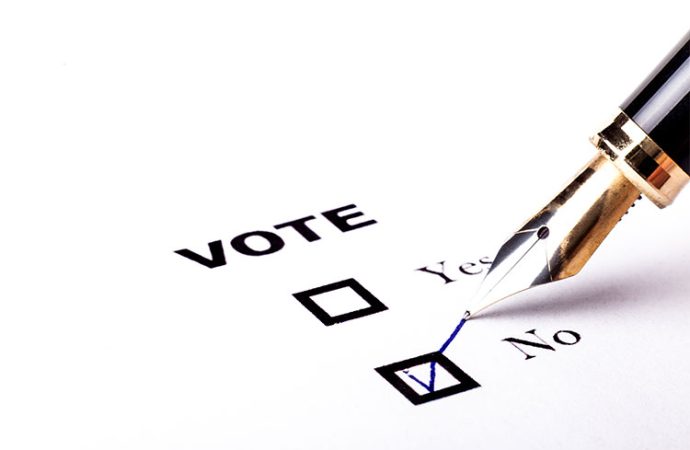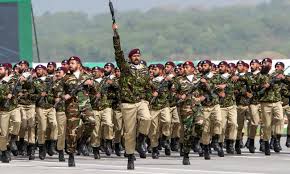Author Recent Posts Manahil Mir Latest posts by Manahil Mir (see all) Geneva convention and Israel’s War Crimes and Accountability – October 30, 2024 Impact of TTP Resurgence on Pak-Afghan Relations – August 25, 2023 Scope of E-Voting in Pakistan; Pros, Cons, Hurdles and the Way Forward – August 25, 2023
Electronic voting in Pakistan has enormous potential to improve democracy. With a growing urban population and increasing internet penetration, electronic voting can address several challenges faced by the traditional voting system in Pakistan. However, can the country actually move forward with initiatives like e-voting or i-voting given the nation’s persistent political and economic unrest?
E-voting has been a topic of discussion in Pakistan in recent years. It has its roots in the nation’s efforts to increase the election system’s efficiency and transparency. Pakistan has faced numerous challenges in ensuring fair and accurate elections, such as allegations of rigging and voter fraud. In order to address these problems and promote democratic norms, the installation of e-voting systems has been suggested as a potential solution for quite some time now.
The Election Commission of Pakistan (ECP) initiated an Electronic Voting Machine (EVM) initiative in 2009, which was the first step towards the use of electronic voting in Pakistan. This project’s major goal was to implement a secure and trustworthy electronic voting system in order to reduce voting irregularities and increase voter confidence. By transitioning from traditional paper-based voting to electronic voting, the ECP aimed to streamline the entire process, making it more efficient, transparent, and accessible for all citizens.
Several legislative acts and amendments have been introduced to facilitate the implementation of e-voting systems in the country from time to time. It is crucial to look at important bills and legal revisions linked to e-voting in Pakistan in order to provide a thorough perspective. One important piece of legislation was the Electoral Reforms Act of 2017, which required the Election Commission of Pakistan (ECP) to install electronic voting machines (EVMs) at every polling station.
This was followed by voting act of 2020 during PTI’S tenure. This act sought to incorporate e-voting in all electoral processes, including national, provincial, and local government elections. The act came out at a crucial time when the number of overseas Pakistanis had significantly increased. Since PTI has a sizable overseas voter base, it is reasonable to assume that they wished to improve their prospects of winning by proposing this reform during their mandate.
In Pakistan, E-voting has been a point of conflict between government and oppositions of different times. The federal government has proposed a new law that banned electronic voting during general elections. The proposed law brings up several crucial issues. The proposed law raises several important considerations. While it’s possible that this action was taken to address worries about the security and accuracy of the voting process, it’s also possible that it was taken to limit the overseas voter base, according to reports.
E-voting has many success stories globally. Estonia, adopted e-voting in 2005. In the 2019 parliamentary elections, Estonia demonstrated that e-voting may be a trustworthy and effective substitute for traditional voting procedures by having more than 90% of its inhabitants cast their ballots online. India, the world’s largest democracy, implemented electronic voting machines (EVMs) to streamline their electoral process. EVMs have not only sped up the counting process but have also reduced instances of electoral fraud.
According to a study by Brookings India, the use of electronic voting machines (EVMs) significantly reduced election fraud, especially in politically delicate states where election rigging frequently required new votes. As a result, the victory margin and the vote percentage of the winning party decreased, making the electoral process more competitive. It empowered the weaker and more vulnerable segments of society (women, scheduled castes and tribes, for example), who were now more inclined to vote. Pakistan can learn a great deal of things from India in this context as both nations have essentially the same political systems and levels of voter turnout in prior elections.
There are many benefits to electronic voting, but there are also certain difficulties that some nations face. Same is the case with Pakistan .There are some issues that need to be resolved when e-voting is implemented in Pakistan. Risks related to cyber security, like hacking or manipulation with electronic systems, are of particular concern. To ensure the efficient operation of e-voting systems, it is also essential that a solid technological infrastructure and internet connectivity are available throughout the nation.
Budgeting for e-voting in Pakistan is significantly difficult at the moment due to the financial considerations. The country’s limited economic resources present obstacles to investing in the necessary infrastructure and technology required for e-voting. According to latest figures of World Bank report, Pakistan’s budgetary support for technological innovation and development is still very low when compared to other nations. This makes it extremely difficult to completely invest in reliable and secure electronic voting systems.
The implementation of e-voting in Pakistan has remained slow due to a number of issues, including a lack of political consensus, a lack of funding, and technological difficulties. Pakistan should carry out extensive pilot projects and feasibility studies, create a thorough legal framework, and launch public awareness efforts to ensure successful implementation of e- voting. Collaboration with e-voting professionals can be extremely beneficial for direction and support, both domestically and abroad.
To ensure transparency and accountability, the role of ECP (Election Commission of Pakistan) and independent monitoring cannot be overstated. This institution plays a vital role in upholding the integrity of elections, safeguarding the democratic principles upon which the nation was built. The idea of electronic voting has enormous potential to transform Pakistan’s political process. If the Pakistani government is successful in resolving above stated issues, the idea of electronic voting could become widespread in the years to come.
- Geneva convention and Israel’s War Crimes and Accountability - October 30, 2024
- Impact of TTP Resurgence on Pak-Afghan Relations - August 25, 2023
- Scope of E-Voting in Pakistan; Pros, Cons, Hurdles and the Way Forward - August 25, 2023






















Leave a Comment
Your email address will not be published. Required fields are marked with *